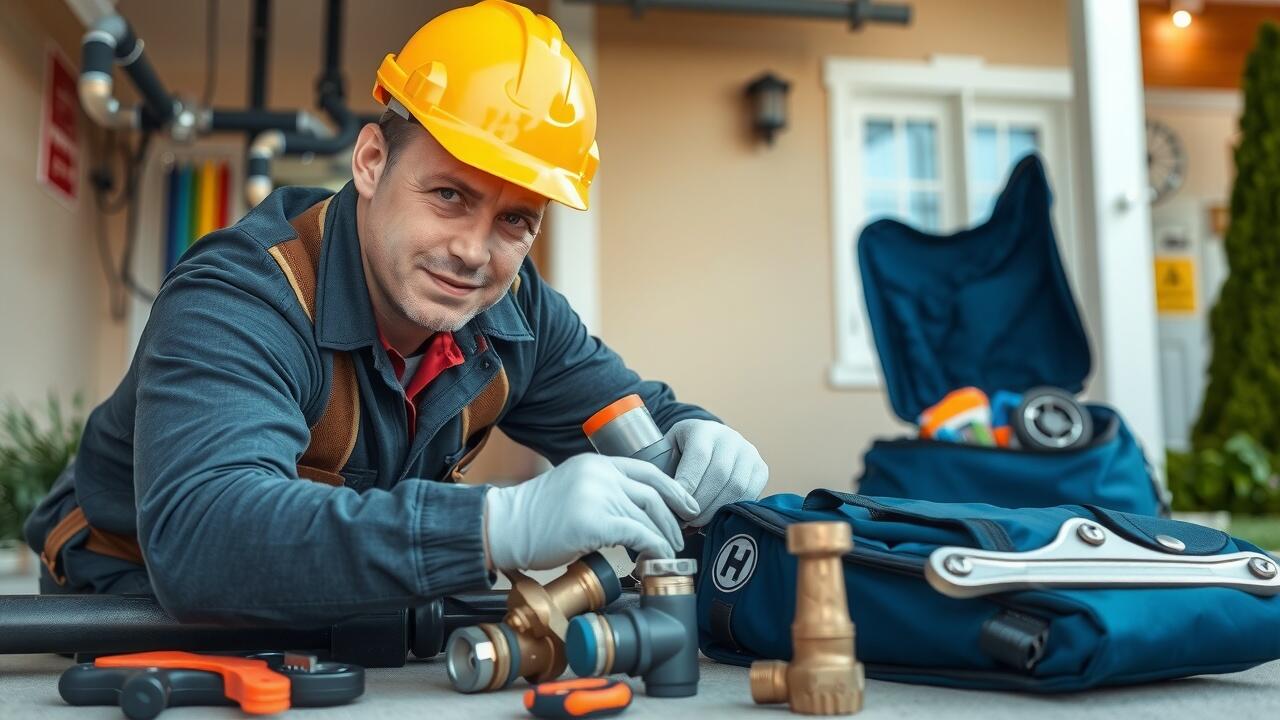How to Choose a Qualified Gas Line Installer
Choosing a qualified gas line installer is crucial for ensuring safety and compliance with local regulations. Start by verifying their credentials, including licenses and insurance. A legitimate installer should hold the necessary state licenses for gas line installation and repair. Reviews and referrals from previous clients can provide insight into their reliability and quality of work. Always ask for references and take the time to follow up to gauge their past performance.
In addition to credentials, consider the installer’s experience in the field. A contractor with extensive experience in gas line installation and repair will likely handle complexities more efficiently. It’s beneficial to discuss specific projects they have completed and inquire about their approach to potential challenges. Transparent communication throughout the process can signify a trustworthy installer, making it easier to address any concerns or queries as they arise.
Key Factors to Consider for Hiring
When hiring a professional for gas line installation and repair, it is crucial to ensure they have the necessary credentials and experience. Verifying their licenses and certifications can provide assurance of their qualifications. Consider how long they have been in the industry and whether they specialize in gas line work. Positive reviews and testimonials from previous clients can also give insights into their reliability and workmanship.
Another important factor is the scope of services offered. Some companies may provide a comprehensive range of services, including inspections and maintenance, while others may focus solely on installation. This distinction matters, especially if you envision needing ongoing support in the future. Obtaining multiple quotes from different installers can help compare pricing and service levels, allowing you to make a more informed decision.
The Cost of Gas Line Installation
The cost of gas line installation can vary significantly based on several factors. The complexity of the project plays a crucial role in determining expenses. For example, a straightforward installation may be less expensive compared to a more extensive system that involves intricate routing through walls or ceilings. Additionally, local labor rates and the type of materials used can also influence the final price.
Gas line installation and repair typically requires a licensed professional to ensure safety and compliance with regulations. This requirement can add to overall costs due to the necessity of hiring experienced technicians. Homeowners should consider obtaining multiple estimates from qualified installers to understand the market rates and services provided. Taking time to evaluate these factors can result in a more accurate budget for the project.
Factors Influencing Pricing and Estimates
Several factors can influence the pricing and estimates for gas line installation and repair. The complexity of the job plays a significant role; if a property requires extensive alterations or specialized equipment, costs may rise. The materials used in the process also impact pricing. For instance, using high-quality piping or fittings can increase the overall cost, but it may provide better longevity and safety.
Geographical location can be another determinant of pricing. In regions where the demand for gas line installation and repair is high, labor costs may be elevated. This can vary significantly between urban and rural settings. Obtaining multiple quotes from licensed professionals will help homeowners understand the market range and ensure competitive pricing for their specific needs.
Understanding Gas Line Installation Process
Gas line installation and repair involve several critical steps to ensure safety and compliance with local codes. The process begins with a thorough assessment of the site where the gas lines will be installed. A qualified professional evaluates the existing infrastructure and determines the optimal routing for the new lines. This assessment helps identify any potential hazards, ensuring that the installation is executed with precision.
Once the site assessment is complete, the actual installation begins. This stage involves digging trenches for underground lines or mounting pipes along walls for above-ground installations. Proper fittings and secure connections are vital to prevent leaks and ensure longevity. After the installation, comprehensive testing is conducted to check for leaks and verify that the system operates efficiently. Effective communication with the installer during this process can help homeowners understand each phase of the work being performed.
Step-by-Step Overview of the Installation
The gas line installation and repair process begins with a thorough assessment of the area where the new line will be placed. A qualified technician evaluates existing infrastructure, checks for any potential hazards, and determines the most efficient route for the gas line. This step is critical, as it ensures compliance with safety regulations and local codes. The installer will also gather information on the required materials and tools for the job, ensuring everything is prepared before beginning the actual installation.
Once the planning stage is complete, the installation proceeds with excavation and the laying of the gas line. Proper depth and alignment are crucial during this phase to prevent future complications. After placing the line, connections to the gas source and appliances are made, followed by a comprehensive pressure test to confirm the integrity of the installation. The final step includes securing the excavation site and providing instructions for maintenance and safety, ensuring homeowners understand what to do in case of an emergency.
FAQS
What is the term for someone who installs gas lines?
The person who installs gas lines is typically referred to as a gas line installer or a gas fitter.
What qualifications should a gas line installer have?
A qualified gas line installer should have relevant certifications, licenses, and experience in plumbing or gas fitting, as well as knowledge of local building codes and safety regulations.
How do I find a qualified gas line installer?
You can find a qualified gas line installer by checking local listings, asking for recommendations from friends or family, and verifying their credentials and reviews online.
What factors affect the cost of gas line installation?
Factors influencing the cost include the length and complexity of the installation, the type of gas line materials used, labor costs, and any additional permits or inspections required.
What is the typical process for gas line installation?
The gas line installation process generally includes assessing the site, planning the layout, obtaining necessary permits, installing the gas lines and fittings, and conducting safety inspections before the system is operational.
Related Links
Gas line installation and repair SeattleWA, Washington
Who would I call to install a gas line?
How much does it cost to have a new gas line installed?
How much does it cost to repair a broken gas line?

